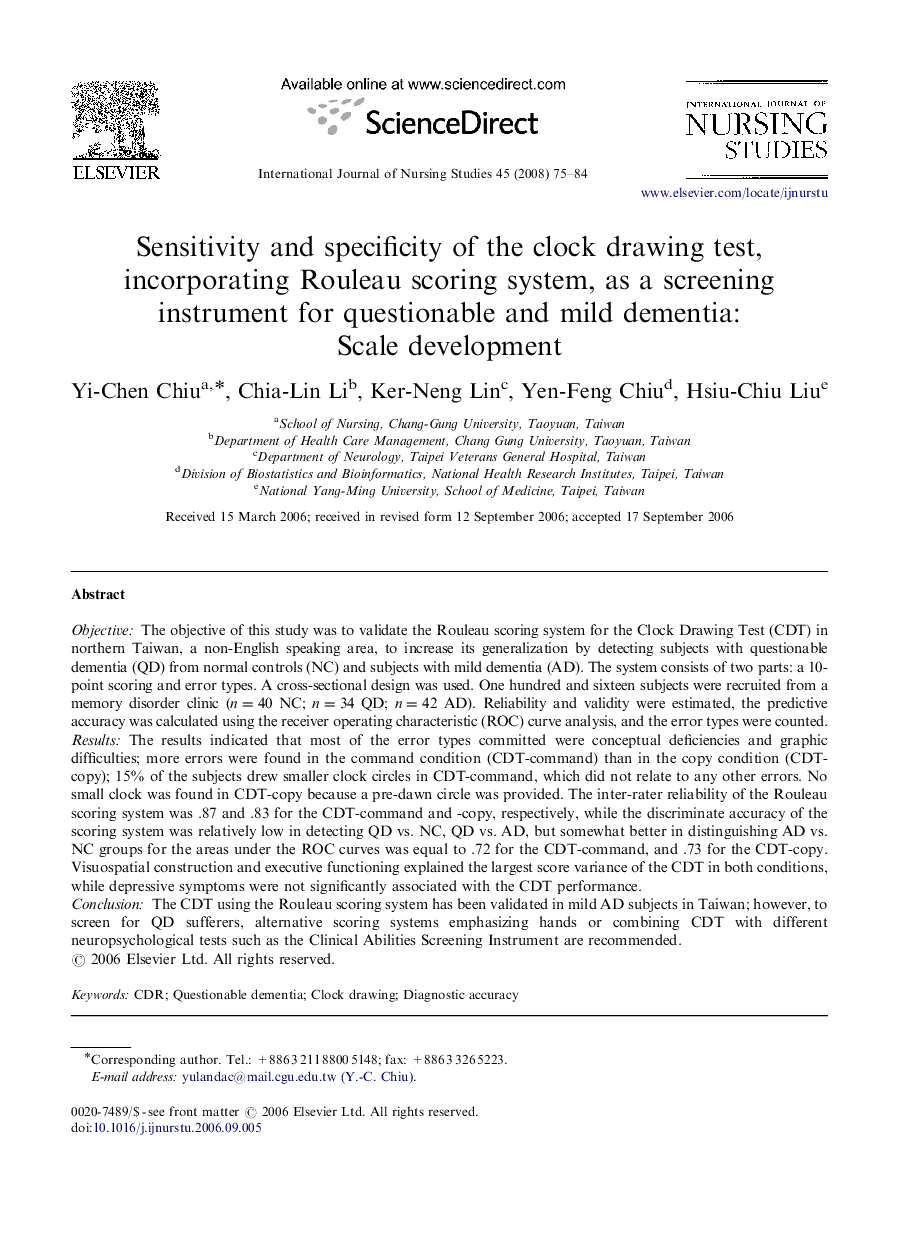| Article ID | Journal | Published Year | Pages | File Type |
|---|---|---|---|---|
| 1077355 | International Journal of Nursing Studies | 2008 | 10 Pages |
ObjectiveThe objective of this study was to validate the Rouleau scoring system for the Clock Drawing Test (CDT) in northern Taiwan, a non-English speaking area, to increase its generalization by detecting subjects with questionable dementia (QD) from normal controls (NC) and subjects with mild dementia (AD). The system consists of two parts: a 10-point scoring and error types. A cross-sectional design was used. One hundred and sixteen subjects were recruited from a memory disorder clinic (n=40 NC; n=34 QD; n=42 AD). Reliability and validity were estimated, the predictive accuracy was calculated using the receiver operating characteristic (ROC) curve analysis, and the error types were counted.ResultsThe results indicated that most of the error types committed were conceptual deficiencies and graphic difficulties; more errors were found in the command condition (CDT-command) than in the copy condition (CDT-copy); 15% of the subjects drew smaller clock circles in CDT-command, which did not relate to any other errors. No small clock was found in CDT-copy because a pre-dawn circle was provided. The inter-rater reliability of the Rouleau scoring system was .87 and .83 for the CDT-command and -copy, respectively, while the discriminate accuracy of the scoring system was relatively low in detecting QD vs. NC, QD vs. AD, but somewhat better in distinguishing AD vs. NC groups for the areas under the ROC curves was equal to .72 for the CDT-command, and .73 for the CDT-copy. Visuospatial construction and executive functioning explained the largest score variance of the CDT in both conditions, while depressive symptoms were not significantly associated with the CDT performance.ConclusionThe CDT using the Rouleau scoring system has been validated in mild AD subjects in Taiwan; however, to screen for QD sufferers, alternative scoring systems emphasizing hands or combining CDT with different neuropsychological tests such as the Clinical Abilities Screening Instrument are recommended.
